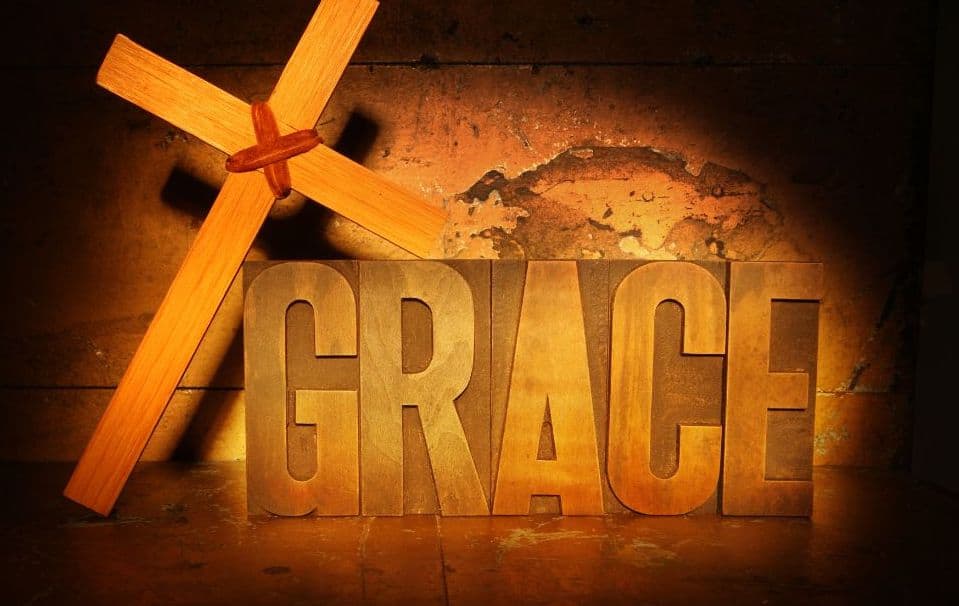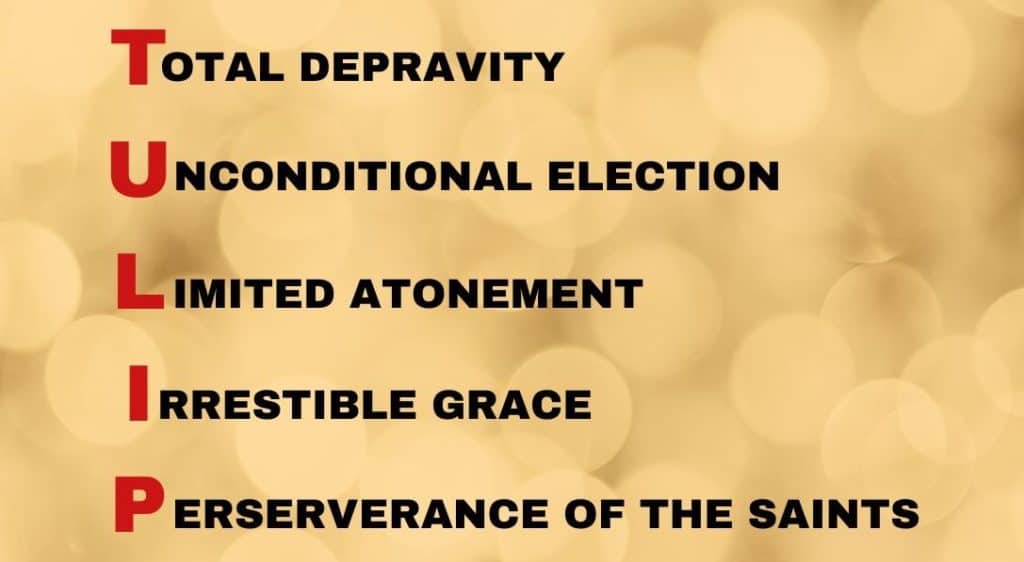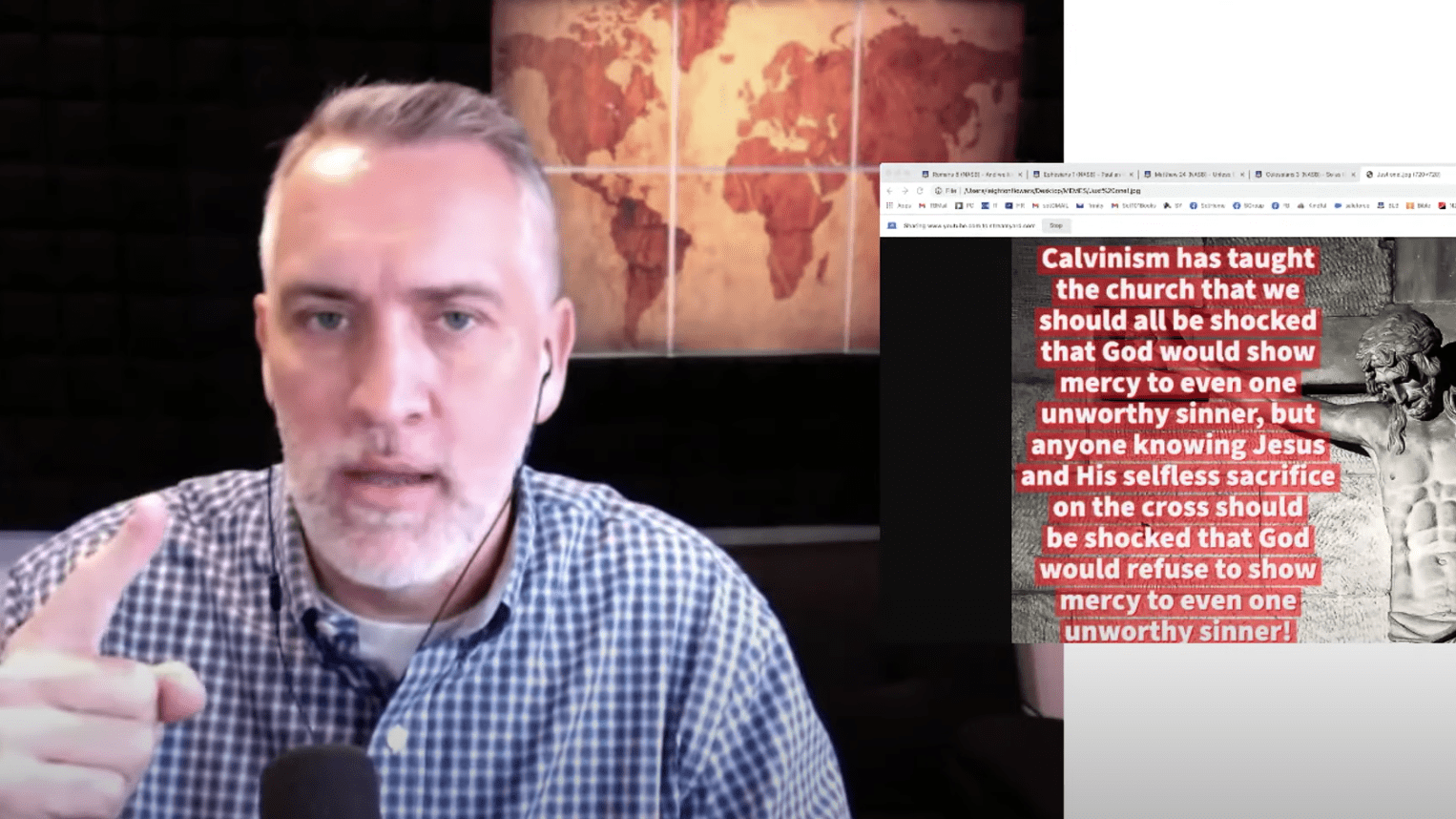Dr. Leighton Flowers is someone making his presence known in the online world of Christian theology with his fairly aggressive, yet respectful challenge of Calvinism, a theological system within Christianity that emphasizes the sovereignty of God and includes the five points represented by the acronym TULIP. These are Total depravity, Unconditional election, Limited atonement, Irresistible grace, and Perseverance of the saints.
Dr. Flowers is someone with whom I was unfamiliar until just a few short years ago. Perhaps if you are involved with Texas Baptists you may have known about Dr. Flowers for quite some time. He has been a faithful minister of the gospel, proclaiming God’s word for many years.
He became the Director of Evangelism and Apologetics for Texas Baptists (the Baptist General Convention of Texas) in 2018. He had previously served as Director of Youth Evangelism for Texas Baptists as well. Before serving in his positions with Texas Baptists, he was a local church pastor for over 10 years.
Dr. Flowers received his Bachelor’s degree in Applied Theology from Hardin-Simmons University, a Master of Divinity in Biblical Languages from Southwestern Baptist Theological Seminary, and his Doctorate at New Orleans Baptist Theological Seminary. He also serves as an Adjunct Professor of Theology for Trinity Theological Seminary.
Quite a large number of Christians have become acquainted with him in the past few years with his YouTube channel and website, Soteriology101. He is a former Calvinist and has become a strong and popular representative for non-Calvinists who disagree with the Calvinistic interpretation of scripture. Dr. Leighton Flowers’ books include The Potter’s Promise and God’s Provision For All: A Defense of God’s Goodness.

A Topic Too Big To Ignore
My intention when beginning to write this article was not to dive into some of the deeper recesses of scholarly debate. I try to leave that to the scholars. However, I would like to provide some encouraging Biblical answers in simple language and encourage believers to grow in their faith. We always want to make a personal relationship with Jesus Christ to be the center of our writing. Plus, I want to write about necessary theological principles in a way that most can understand.
Especially when there is teaching like this that involves the fundamental biblical doctrine of salvation and one that can even give people doubts about the character of God, then we should probably explore it a bit.
In choosing to write about Leighton Flowers I do so because I think he is on target in his teachings on the topic of Calvinism and the fundamental flaws of the Calvinistic system.
I understand that because of my lack of enormous scholarly credentials, my small ramblings here may well be dismissed and picked apart by some as content that is ill-prepared and ignorant of the truth of God’s word. But, here we go –
One of the primary pushback of some, not all Calvinists in the church is basically “You don’t believe this because you don’t know the Bible well enough.”
To that, I say that there are an incredible number of Godly scholars who disagree with this type of Reformed theology. And, like Leighton Flowers is attempting to do, many others are wading into the communication platforms of this culture and sharing the gospel from the perspective of Dr. Flowers.
However, some respectable and extremely influential ministers of the Gospel hold strongly to the Calvinistic view. Dr. John MacArthur and Dr. John Piper are two who come to mind. I believe that both of these men have done incredible good work for the kingdom of God. I still use both of them as references for some theological and biblical issues.

While many debate Calvinism versus traditionalism versus Arminianism, Dr. Flowers prefers what is called Provisionism. This is a view of God’s gracious provision for every single individual so that anyone may choose to believe and be saved.
The broad-scope debate of Calvinism vs Arminian has gone on for centuries and we won’t be doing an intensive analysis of that debate. In most of the Baptist churches in which I served, we never landed squarely in either of those camps, but somewhere perhaps in the middle.
Decades ago, as a young minister coming up in the Southern Baptist Convention (SBC), I rarely heard that much about Calvinism. I certainly don’t remember the ministers who strongly influenced me standing on the teachings of Calvinism.
Sure, they would all give it a shot trying to explain what they could about predestination. Didn’t we all? However, we hardly landed where The Calvinistic System has landed now.
In those days in the 80s and 90s when I was a young SBC minister, we were having battles about Biblical inerrancy, liberal seminary professors, and conservative vs liberal control of the Convention. It’s very possible that I just wasn’t paying enough attention, but I just don’t remember as much about the debate between Calvinists and non-Calvinists.
The Calvinistic/deterministic doctrine would have seemed to be something that our Presbyterian brothers across the street would be discussing. However, now the issue is quite a large one to be addressed among Southern Baptists and believers in general.
Embracing the True Doctrine of Grace

Also, as a young minister, I was faced with the truth of believers embracing their true identity in Christ. Works-based salvation was never in question. However, in terms of living out your Christian life daily, there was a lot of works-based righteousness taught – whether it was called that or not.
Fortunately, in my early to mid-20s, I was taught about God’s lavish grace- His unmerited favor for us. I believed that the good news of God was that by God’s amazing grace we have been saved and by God’s amazing grace, we are kept. I loved the teachings of Paul versus what I saw as legalistic teaching from some of the Baptists I was hearing. I learned that the power of the Gospel was even greater than I had been taught.
I was thankful that I could choose grace over law and I tried to lace all of my leadership and teaching with the grace-based narrative that I could see the Apostle, Paul, wove into the fabric of his letters.
Learning more deeply about God’s unmerited favor, His mercy, and my identity in Him changed me in terms of life and ministry.
Grace was better than I ever knew! I believed that was the proverbial “Gospel Truth.”
“The Doctrines of Grace?”
However, today we see pastors and churches struggling with the teachings of Calvinism which are now labeled “The Doctrines of Grace.”
I think that term is unfortunate because it’s hard for me to look at Calvinism alongside what I would consider the true doctrine of grace. I love my Calvinist brothers and sisters but I just don’t believe that much of their “doctrines of grace” are actually the truthful doctrines of God.
This is not to say that I run around and call Calvinism heresy because the Calvinists I know preach salvation by grace through faith in Jesus Christ. they believe that Jesus Christ is the only way to the forgiveness of our sins and to have a relationship with the Father. So, we can agree on the fundamentals of the cross of Christ.
And, If you ask most Calvinists I know how to be saved, they can lead you and tell you how to be a Christian. But, you have to be one of “The Elect for that to happen (more on that in a moment). What I have learned in the last few years about Calvinism is very opposite of what I had learned, accepted, and taught as a part of my grace-based theology. Calvinism seems to view the grace of God from an angle with which I just can’t seem to agree.
So, back to Dr. Leighton Flowers. Leighton has come on strong in recent years with a loving, but full-throttled repudiation of the Calvinistic theology that he once embraced and taught.
Since he is an example of a pastor who had strongly embraced Calvinism and then became disillusioned with its teachings, I want us to look at some of the key issues that brought Dr. Flowers out of Calvinism.
However, first, I know there will be quite a few of our readers who don’t understand the basic claims of Calvinism. So, let’s take a bit of time to do a brief flyover of the basic tenets of this doctrine.
Calvinism is very big on God’s sovereignty. I am too. You don’t have to be a Calvinist to have a massive view of God’s sovereignty. However, your view may be quite different from what is found inside the TULIP of Calvinism.
The Primary Tenets of Calvinists As Explained in Their T.U.L.I.P. Acronym
Those who refer to themselves as 5-point Calvinists point to five primary points that summarize their theology. The acronym that is used to summarize the viewpoint of Calvinism is the word, “TULIP.”

Let’s see if we can get close to summarizing the points of this theology.
T- Total Depravity
This is the belief that every person who shows up on planet Earth is affected by the original fall of man into sin. They inherit a sinful nature and cannot independently react to, or embrace the love and grace of God that He offers unless… He has predetermined (chosen beforehand) that their spirits are awakened by an act of the Holy Spirit where we can embrace Christ as our Savior.
U- Unconditional Election
In what is one of the more contentious parts of TULIP, Unconditional Election means that God has chosen beforehand everyone who will ever be saved. Those who are chosen by Him before the very foundation of the world will become His children, and be born again by no choice of their own. Those who are not chosen will suffer eternal punishment.
Therefore, no free will is involved in a person receiving Christ. He must choose us. He must predetermine us to salvation or we cannot be saved. Persons who are not chosen beforehand have no chance.
L- Limited Atonement
This part of TULIP states that Jesus Christ didn’t die for the sins of everyone – as we all presumed since the first time we read John 3:16. This portion of the doctrine says that Jesus died only for the sins of the “elect” – those that were predestined to be saved and become a child of God.
The doctrine says that Jesus’ death is sufficient for all, but God only intends to atone for the sins of the predetermined “Elect” and not everyone.
Irresistible Grace
The “I” in the TULIP acronym stands for Irresistible Grace. Calvinists teach that Irresistible grace is that God brings those He elects to salvation, calling them internally and they cannot resist. The Holy Spirit will supply them the grace to repent from their sins and they are born again. Once again, there is no free will or choice involved on the part of man. God makes the person have a relationship with him.
P- Perseverance Of The Saints
Calvinists, unlike the view of the Arminians, believe that those who are of the Elect cannot lose their salvation. Salvation is a work of the Father, Son, and Holy Spirit and can’t be undone.
None of the Elect will be lost. If you are fortunate enough to have been chosen by God, you are secure eternally and will be with Him in Heaven. So, actually, it’s not the Saints that persevere, it’s God that keeps them.
The Father’s Robots?
I believe that God is Sovereign – that He has complete rule and dominion over His creation. However, I also believe that He has chosen to allow mankind free will to make good or bad choices.
The sovereignty of God to a Calvinist seems to be His predetermined and meticulous control over everything that happens, including every single thought, action, or reaction of men and women.

5-point Calvinists believe that when they woke up this morning, everything they were going to do today has been predetermined by God long in the past. What they had for breakfast, the words they said to their husbands or wives, and every choice they make today and tomorrow will have been made in advance before the foundation of the world by God. Yeah, kind of like robots, although that term seems to frustrate Calvinists.
I do recognize once again that there are degrees of Calvinistic beliefs. However, the 5-point hard-liners believe that every good thing and every bad thing is caused by God. That includes sin – every act of evil or violence, every murder, every rape, every killing of the innocent, and things such as vile as the holocaust were also chosen by God and set in motion before the foundation of the world, all for His ultimate glory.
On the contrary, I believe that because of the fall of man into sin, God allowed sinful men to make evil choices that have caused wars, murders, slavery, child abuse, and every type of sexual sin imaginable.
Unless the perpetrators of evil arrive at the conviction of their sin and repent before a Holy God, they will be held eternally accountable and separated from God.
However, for reasons that I cannot fathom, Calvinists believe that God not only allowed the heinous sins of the world to occur, but He chose them to happen. He determined those to happen because He would get the ultimate glory.
So, as one who was locked into a legalistic system with little excitement about God and then tasting His marvelous grace, you can see why I take offense at Calvinism being referred to as the “Doctrines of Grace.”
No Scholarly Thesis
Please understand these are the beliefs and opinions of a guy who spent 40 years in the ministry in the local church, but I’m no Calvinistic scholar. If I had a conversation with James White or John Piper about this doctrine, my head would spin backward.
I understand that if any true Calvinists are reading this right now they will say that I am not producing the scriptures to attempt to back up what I believe or even what they believe. They might say that I couldn’t explain any type of systematic theology if it hit me in the face.
Therefore, I want to reiterate that this is not a piece about scripturally proving or disproving the perspective of the doctrines of Calvinism. I would rather call Christian brothers or sisters, and especially churches as a whole aware of the growth of Calvinism and understand something about its tenets.
I believe that people like Leighton Flowers are standing for many believers against a doctrine that millions of Christians barely- if at all – even know exists.
It’s a doctrine that I believe depicts a picture of God’s sovereignty that, no matter its intentions, causes doubt, fear, and even disappointment in the Holy Christ we serve.
Please understand these are the beliefs and opinions of a guy that spent 40 years in the ministry in the local church, but I’m no Calvinistic scholar. If I had a conversation with James White or John Piper about this doctrine, my head would spin backward.
I understand that if any true Calvinists are reading this right now they will say that I am not producing the scriptures to attempt to back up what I believe or even what they believe. They might say that I couldn’t explain any type of systematic theology if it hit me in the face.
Therefore, I want to reiterate that this is not a piece about scripturally proving or disproving the perspective of the doctrines of Calvinism. I had rather call Christian brothers or sisters, and especially churches as a whole aware of the growth of Calvinism and understand something about its tenets.
I believe that people like Leighton Flowers are standing for many believers against a doctrine that millions of Christians barely- if at all – even know exists.
It’s a doctrine that I believe depicts a picture of God’s sovereignty that, no matter its intentions, causes doubt, fear, and even disappointment in the Holy Christ we serve.
Topics Within Calvinistic Theology that Must Be Addressed
Well, we can’t be so silly and Biblically frivolous that we ignore some difficult and perplexing topics in the scriptures.
–What about Salvation? Is that not available to everyone?
–Did Jesus Christ only die for the “Elect?”
–The Bible does talk about the Elect. So, who are the Elect?
–Is salvation a work of irresistible grace fro God
–Does a person have any choice in His salvation?
–What is predestination?
–Is the predestination spoken of in the Bible and God predetermining the flavor of gum I will have this afternoon?
–Do I have any free will at all?
We can’t dive into all of these and every other question about deterministic theology. However, I want to take a look at the reasons that Dr. Flowers left Calvinism and has become a leading teacher against it.
The quotes I will use from Dr. Flowers are from “THE 5 POINTS THAT LED ME TO LEAVE CALVINISM” on Soteriology101.com.
Leighton Flowers’ Pathway Out of Calvinism

If you can’t tell by now I am very grateful for the work and the ministry of Dr. Leighton Flowers. Considering the hundreds and hundreds of videos and posts, I could hardly attempt to summarize the viewpoints of Soteriology101.
However, from His own writings, I want to attempt to summarize what brought him out of the pro-Calvinistic teaching landscape.
1- Concerning Predestination and Election He Saw that the Foresight Faith View was not the only Robust alternative to the Calvinistic viewpoint
Much of the time if you don’t believe that God chose everyone for heaven or hell before the foundation of the world, then it’s assumed you believe the following:
God, who is not constrained by time looked into the future and saw who would “make the choice” to accept Christ. When He saw who made that choice He made them the “Elect.”
However, Dr. Flowers explains, “I found a much more robust and theologically sound systematic in what is called “The Corporate View of Election.” As he points out that is a view that could commonly be found with Southern Baptists, where my roots are as well.
The Corporate View of Election is a soteriological view that rather than individual persons, God chooses “in Christ” a people that he destines to be holy and blameless.
Put another way, “Election is the corporate choice of the church “in Christ.” While, also, some of the election passages have to do with Israel and some individual Israelites as well.
2- Dr. Flowers began to Understand there Was a Distinction Between “Original Sin” and “Total Inability”
While Calvinists teach that man in his natural state is deaf to the gospel and blind to see and understand the message of the gospel, Dr. Flowers sees it otherwise. He sees it as “judicial hardening,” not a natural condition from birth (Acts 28:27-28; John 12:39-41; Mark 4:11-12; Rom. 11).
The unregenerate man needs the Savior but the revelation of God and the Gospel of Jesus Christ is the method by which he draws and enables whoever hears it and comes to Christ. So, ANYONE who hears or sees the truth of the gospel can respond to that truth. As Dr. Flowers comments,
“Thus, anyone who does hear or see His truth may respond to that truth, which is why they are held response-able (able-to-respond).”
Perhaps that is why Dr. Flowers uses what I think is the more accurate term in Calvinist theology. He seems to prefer using the phrase “total inability” rather than “Original Sin.”
Personally, while I believe that we are born into sin as inherited by the fall of man, still we have the ability to respond to God’s call to Salvation.
3- Dr. Flowers believes that a decision to humble ourselves in repentance and faith isn’t meritorious. He expresses that even repentant believers deserve eternal punishment.
When we choose repentance and faith to embrace Christ as our Savior for the forgiveness of sins, that action in no way means that we deserve it. Asking to be forgiven does not mean that we deserve that forgiveness. Dr. Flowers uses the example of the Prodigal Son.
“Did the prodigal son earn, merit or in any way deserve the reception of his father on the basis that he humbly returned home? Of course not. He deserved to be punished, not rewarded. The acceptance of his father was a choice of the father alone and it was ALL OF GRACE.”
4- Leighton Flowers Believes that a gift doesn’t have to be “irresistibly applied for the giver to get full credit for giving it.”
According to Calvinism, remember that God has to change the person’s nature for them to believe. It can’t be anything resembling us choosing to follow Christ or you will be accused of “trying to steal God’s glory.”

So, we were born into sin, lost without Christ. Yet, if we choose the unmerited salvation of a loving God, that somehow gives us the glory? That’s hard to see.
Dr. Flowers sums up the point:
“Why can’t we give God all the glory for enabling mankind to respond to His gracious truth? Why must he irresistibly cause our acceptance of that truth in order for Him to get full glory for giving it?
It in no way robs God of glory by suggesting He does not irresistibly determine men’s choice to accept or reject the gospel appeal. In fact, it seems to lessen His glory by making Him appear disingenuous in that appeal sent to all people. Should not God get the glory even for the provision of those who reject Him?”
5- Dr. Flowers understands that the sovereignty of God is Not an eternal attribute of God that can be compromised by the existence of free moral creatures.
Dr. Flowers makes the argument that God’s sovereignty does not keep man from having a free or autonomous will.
He questions-
“Should sovereignty be interpreted and understood as the necessity of God to “play both sides of the chess board” in order to ensure His victory?”
He also makes the statement that makes. some Calvinists gasp as he says that God’s Sovereignty is not an eternal attribute of God.
“Please understand, sovereignty is most certainly an attribute of God, but it is a temporal attribute. The Omnipotent God has not yet taken full sovereign control over everything on earth as it is in heaven. Is not that His prerogative? Passages throughout the bible teach that there are “authorities” and “powers” which are yet to be destroyed, and that have been given dominion over God’s creation.”
He gives scriptural texts such as Isaiah 24:21, Ephesians 6:12, Colossians 2:20, 1 Corinthians 15:24, Colossians 1:16, Colossians 2:15, and others to help in understanding this viewpoint.
Wrapping it up
As I said, I’m thankful for Dr. Flowers and others who are on the front lines offering another theological option to Calvinist teachings. He would be my go-to for a solid professor of soteriology who can give a biblical defense of his stance against the primary tenets of the Calvinistic system. It seems that when you do a Google search, the Calvinists are doing a lot of advertising and Search Engine Optimization (in which I have experience) in getting out their theology.
Although there are other websites and YouTube channels from those who are not Calvinists, I hope that more and more ministers of the gospel will stand and provide solid alternatives to reformed theology. I have watched Dr. Flowers go from a smaller presence online to have a lot of amazing supporters for his ministry.
He has great skills as a guest speaker, in one-on-one debates, or an open panel discussion.
My Calvinist friends are my brothers and my sisters in Christ. Some great teachers are Calvinists whom I use as resources for studying other Biblical topics. We agree on the truth of the life, death, and resurrection of Jesus Christ as our only hope. We come in repentance and faith to Christ Jesus as our Savior and Lord.
We simply disagree with some fundamentals of how some of it plays out theologically.
God bless you as you seek God in all of His goodness, glory, and sovereignty.
I would encourage you to check out https://soteriology101.com/ and the corresponding YouTube channel- https://www.youtube.com/@Soteriology101.





Leave a Reply